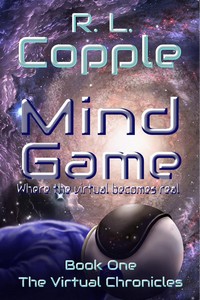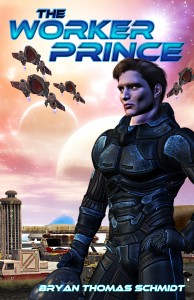 I think I've only done one other movie review. Star Trek 2009 reboot. In that one, I noted some plot holes that didn't invalidate its popularity. Man of Steel also had what I would call plot holes, but I think those affected its popularity due to other issues being weak as well.
I think I've only done one other movie review. Star Trek 2009 reboot. In that one, I noted some plot holes that didn't invalidate its popularity. Man of Steel also had what I would call plot holes, but I think those affected its popularity due to other issues being weak as well.First, I'll give my spoiler-free review.
I consider it to be a mixed bag. Good points? Action scenes were well done. Lots of stuff happens. The motivations for Zod were decent, even if inconsistently applied. If you're someone who likes a lot of fights and exciting stuff happening, you won't be disappointed.
Some people didn't like the more "brooding" Clark compared to the comics and previous movies. I thought it lent a little more realism to Clark's personality. There is certainly more "gray" morality presented. It does create some inconsistencies with previous incarnations, however.
Purist will not like this aspect. While I appreciate the more human element Nolan attempts to give Superman, there is a valid argument to be made that some heroes should stay super. That is, super means "above and beyond" something. In this case, above and beyond a mere man.
One theme emphasized is that Clark came to offer mankind hope. Yet, more people die and more destruction is dished out than any other Superman movie. In the end, few people would have lost their lives if Superman hadn't come to Earth. So much for hope.
The message I derived is that Superman can't save everyone. In one scene, a helicopter goes out of control (Hum, where have we seen that before...Mr. Reeves?), one person falls out. Superman saves that one person while the rest die as the helicopter crashes. This isn't about Superman "saving the day" for everyone, but forced to make decisions that stretch his ethics, so we can share in his emotional turmoil.
Acknowledging the problems with all that, it was certainly a fresh view of Superman, despite how well it paralleled Nolan's Batman story.
On the negative side, there was limited and inconsistent character development. How some people are portrayed starting out, like Lois Lane, shifts as the movie progresses. Clark's earthly dad gives him conflicting advice.
There is some character development, unlike the first Transformer movie, but the constant flashback scenes through the first part of the movie end up putting it on hold too many times to let it develop properly. Tell the flashback stories in chronological order and getting to know the characters would have been more complete.
I also felt the dialog was unnatural at spots. Sounded more like the director needed to get information to the viewer than something the characters would naturally say. Likewise, motivations were not always clear why a character did what they did.
Emotions were often not natural in the face of death or such. How Superman defeated Zod made no sense. Examples to follow.
Overall, I'd give it 3.5 stars on a 5 star scale. Worth watching, especially if you are in it for the action, okay on character and plot development, but nothing that stands out. Conflicting theme points between dialog and actions. Purist will have problems that Superman isn't as super as previously.
Spoilers!
Here are a few specific examples of what I discussed above. Stop reading here if you haven't seen it and don't want any spoilers of significance.
This
is
space
to
give
you
a
chance
to
veer
away
before
seeing
anything
you'll
regret.
Okay, here we go. Plot/character issues I noticed:
1. Clark's earthly father confuses Clark by giving him contradictory advice. One minute he's telling him he's come to give humanity hope, the next telling Clark to always keep his powers a secret, even at the expense of lives. Even saving his own father's.
2. Clark's father's motivation is suspect. The concept is he was willing to sacrifice his own life rather than Clark's secret be revealed, and people treat him differently. If true, however, that is some seriously messed up thinking. Not only because people's lives are more important than Clark's anonymity, but also to avoid putting Clark in the position of knowing he could save people, but not allowing him to. That's got to do a number on your guilt and esteem. This may account for the next issue.
3. Superman seems uncaring about the damage and deaths he is causing, except for Zod's. Fighting Zod and his companions in both Smallville and Metropolis plows through buildings with people in them, topples skyscrapers with people in them, saves some but lets many die, with nary a twinge of emotional reaction, compassion, or an attempt to move the fights to less populated (but not nearly as dramatic) landscapes. Only when he kills Zod does he show any remorse.
4. Lois is chosen by Zod to be taken up to his spaceship with Superman for no apparent reason other than plot convenience. Once there, Zod has her immediately locked away, though later we learn Zod went into her mind (Nolan failed to show that part) to get info on Superman. But conveniently Superman passes her the little "S" data bank, which oddly once she is locked up, she finds an access panel where that "S" stick fits, and despite it all being alien technology that she'd have no clue whether this is a good idea, sticks it into Zod's ship, saving herself and Superman from certain death. Kind of cool, but only due to some luck and coincidental correct guesses by Lois.
5. Killing Zod made no sense. Most people focus on the ethical situation of Superman killing someone in cold blood. Most movies tend to get around this by the hero showing compassion when they could kill the bad guy, but the bad guy invariably takes that opportunity to get the hero, which either forces the hero to kill in self-defense, or the bad guy ends up killing himself (as in Spiderman jumping out of the way as Goblin's glider hits him instead of Parker). But this is consistent with the movie's themes of Superman being forced to make decisions on who lives and who doesn't. However, in reality he didn't have to make that decision to break Zod's neck:
a) The people Zod threatened to kill had a clear path of escape. Obviously Superman was restricting Zod's neck movement to a slow crawl toward the people. They had time to run the opposite direction. Yet they don't take the obvious escape nor does Superman tell them to run. They acted trapped, but they weren't.
b) If Superman had the strength to snap Zod's neck and kill him, he had the strength to keep Zod from inching his heat vision ray toward the people. Superman acted as if he couldn't stop Zod from moving his head, yet has the power to twist his neck in half.
c) Zod's neck suddenly becomes very fragile. For long fight scenes, the two are pounding each other in the face, plowing through buildings, pretty much smashing into each other. Despite all that beating and strength shown in previous scenes, Superman is able to hold Zod in an arm-lock, and then snap his neck. Not believable.
Bottom line, aside from the ethical questions, Superman didn't have to make that decision, nor could he have snapped Zod's neck, given what had immediately proceeded that scene.
6. Superman supposedly would be made weak by the gravity rays transforming Earth. Initially, he seems to be negatively affected by them. Then, suddenly for no explained reason, he was able to go down into the actual gravity ray and fly right up, in, and through the ship. Theoretically, inside the ray should be the worst place for him. If there was an explanation, I didn't hear it.
I could nitpick at others, but those are the biggest issues I noticed on plot and character development. Maybe you saw other issues? Let me know what they were.








 Have you ever read a book that refused to be pigeonholed? In some cases, that can be a negative, in that the author shoots all over the place and so hits nothing. In other cases, as we have here, the author creates her own unique story that accomplishes several things.
Have you ever read a book that refused to be pigeonholed? In some cases, that can be a negative, in that the author shoots all over the place and so hits nothing. In other cases, as we have here, the author creates her own unique story that accomplishes several things.
 I love it when I read a book that has great characters, an unpredictable plot, and clear writing that doesn't get in the way of the story. And by all accounts, that's what you can expect to find in
I love it when I read a book that has great characters, an unpredictable plot, and clear writing that doesn't get in the way of the story. And by all accounts, that's what you can expect to find in  This is a book sent to my by the author for free, to review. I've sat on it for some time. In part because I've had several other books I wanted to read, in part because I didn't have a lot of time, and in part because being a self-published book I feared the worst.
This is a book sent to my by the author for free, to review. I've sat on it for some time. In part because I've had several other books I wanted to read, in part because I didn't have a lot of time, and in part because being a self-published book I feared the worst. If there is one thing that can be said about Flashpoint, it's this is not your father's Christian apocalyptic tale. This first book in Frank Creed's series (the next book is coming out soon, I understand), introduces us to a world controlled by a group referred to as "One-State Neros." This group attempts to subdue a rebel alliance of Christians who refuse to submit. It is into this group that Dave and Jen are thrown when their own church comes under attack and is captured.
If there is one thing that can be said about Flashpoint, it's this is not your father's Christian apocalyptic tale. This first book in Frank Creed's series (the next book is coming out soon, I understand), introduces us to a world controlled by a group referred to as "One-State Neros." This group attempts to subdue a rebel alliance of Christians who refuse to submit. It is into this group that Dave and Jen are thrown when their own church comes under attack and is captured.

